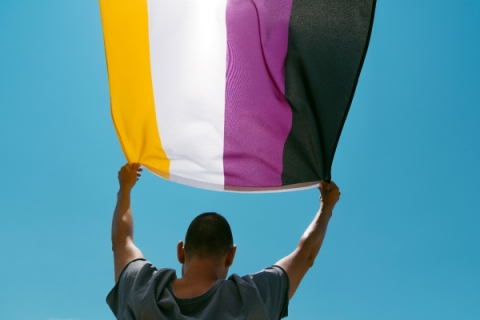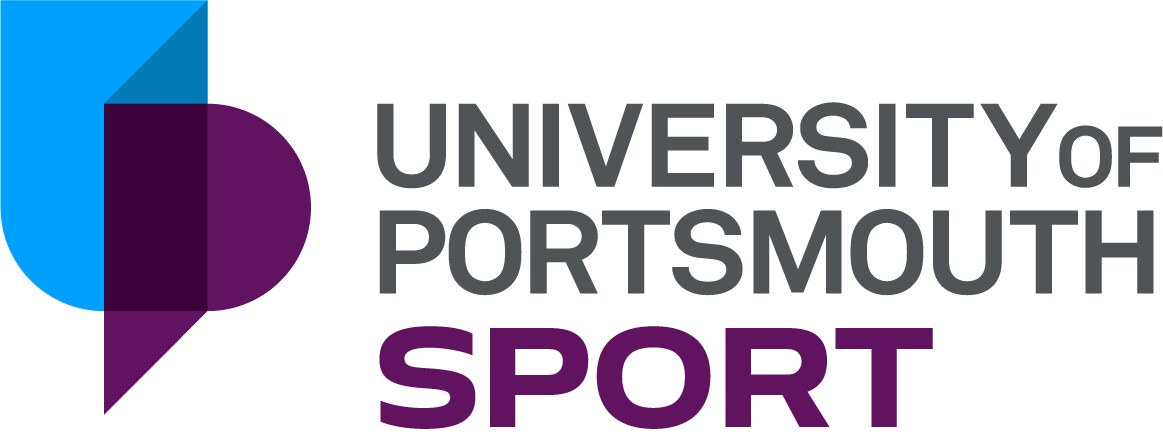

Read Lena's story about gender expression and how sport can help with anxiety.
Our Caring About Not Caring Campaign begins with stories from Team UOP member's. This campaign aims to provide insight into the lives and experiences of members of the LGBTIQA+ community. These honest and frank stories are an example of how sport and physical activity can play a part in providing a sense of belonging and combatting feelings of anxiety. We want to raise awareness for these stories and of the issues they look to challenge. These personal stories are powerful and should start up conversations between you and your friends, family and team-mates. We have also supplied a number of resources below if you are affected by this story.
Lena's story
Tell us about you and your sport
My name is Lena, or Len, my pronouns are they/them and I’m non-binary. When I was about eight years old I started horse riding at my local equestrian centre, and immediately fell in love with the challenging, gratifying and freeing nature of the sport, but also the stunning horses I got to bond and train with. This year I’ve finally had the opportunity to pick it back up, along with diving into the worlds of pole dance and aerial silks for the first time. Aerial arts have become just as beloved to me as riding for their beauty and versatility, but also how fun they are! Every one of my sports truly feels like an art and I am proud to be part of them.
Have you ever felt or experienced a negative situation due to your sexuality/gender identity within your sport, and how did the people around react?
My gender and gender expression are a core part of my identity and are carried with me through everything I do. It’s possibly the hardest part about it: people don’t want to see that I don’t fit the binary that they know, or that I won’t comply with gender roles or beauty standards. I don’t experience gender dysphoria outside of the rejection of who I am by others (misgendering or stereotyping, for example) but it becomes significant when I’m in public and participating in the activities I so want to enjoy when I also suffer from anxiety.
Interacting with strangers while in the sports kit I need for pole, for example, can be nerve-wracking; pole requires grip from skin contact with the metal, which means short shorts and short sleeves, or a sports bra. It’s also often that people carry (incorrect) preconceptions of what a pole artist may look like: generally female, super slim, with long flowing hair and perfectly smooth skin. But my hair is short, I don’t shave my legs, and I am not female, but nor am I male. And that makes overcoming my anxiety and performing with confidence incredibly hard some days.
It always ends up a worry for me that the people I interact with will think less of me for any number of reasons, but the transphobia rankles the most. So often have I heard people ridicule non-binary identities and pronouns as “unnecessary” or “stupid” in public, casual conversations, frequently accompanied by derogatory transphobic language and ideas. People around almost never do anything about it, if they even notice, and frankly, it’s terrifying. My heart rate picks up, my hands start shaking, I freeze up and sometimes even start looking for escape routes. But no one does anything because stepping out of line in your circle to challenge harmful attitudes is a fate worse than death, for some, and can threaten the coherence and rapport of the whole team.
Gender dysphoria is a term that describes a sense of unease that a person may have because of a mismatch between their biological sex and their gender identity. This sense of unease or dissatisfaction may be so intense it can lead to depression and anxiety and have a harmful impact on daily life.
What do you think teams/sport members can do better to make their LGBTIQA+ team mates feel safer within their sport?
It’s this fear of standing up to hate that makes social and sporting spaces threatening and unwelcome for those who suffer it. What I want to tell everyone is that just ONE person willing to speak up for good can make so much more of a difference than you think. Educate yourselves on our issues, read our stories, and make your teams friendly, accepting, zero hate-tolerance spaces. I promise that suddenly sports can become a whole new level of fun for everyone involved when people simply stop to be kind to each other!
If you could meet your younger self what advice would you give you?
What I want to tell the younger version of me, the one who isolated themself for months at a time, is that the few with the biggest mouths are always the loudest. That my community is out there, that there are truly good people. Most of all, I think I’d tell myself that nothing my anxiety tells me is worth losing out on how it feels to fly—on silks, a pole, or horseback.
If you need some support with your mental health at this time, the student wellbeing service have a number of resources to help.

